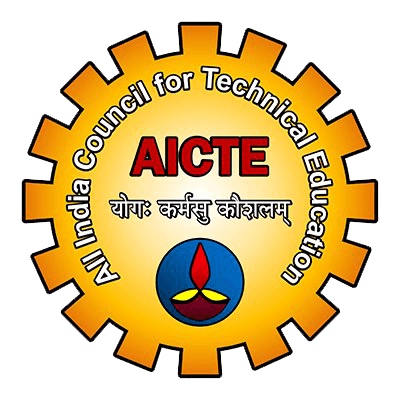

The ATAL Sponsored 6 Days Online Faculty Development Program (FDP) was successfully conducted from 20th January 2025 to 25th January 2025. The focus of the program was on VLSI Design for IoT and Edge Computing, an emerging area of study with increasing relevance in today’s technological landscape. The program aimed to enhance the knowledge and skills of faculty members through insightful sessions on the latest trends in VLSI, IoT, and Edge Computing.
The inaugural session on 20th January 2025 was a significant event, marking the official commencement of the FDP. The session began with a Welcome Address by Dr. R. Mohanapriya, Head of Department, ECE OF Paavai Engineering College, who warmly welcomed the participants and set the tone for the sessions that followed. She expressed her enthusiasm for the program and emphasized its importance in bridging the gap between industry advancements and academic knowledge. Following the welcome address, the Presidential Address was delivered by Dr. M. Premkumar, the Principal of the institution. In his address, he highlighted the importance of VLSI Design in the context of IoT and Edge Computing, which are crucial components in the current technological ecosystem. He stressed the need for educators to keep up with these emerging trends and equip students with the necessary skills to meet industry demands.
The program was efficiently coordinated by Dr. S. Vijayakumar, Professor and FDP Coordinator, who welcomed the gathering daily, ensuring that the participants were well-informed and engaged throughout the program. His efforts in managing the program logistics and ensuring smooth execution were crucial to the success of the FDP. The Co-Coordinator, Mrs. R. Bhuvaneshwari, Assistant Professor in the Department of Electronics and Communication Engineering (ECE), introduced the Chief Guests and delivered the Vote of Thanks at the end of each session. The feedback from participants was overwhelmingly positive. They appreciated the in-depth coverage of the topics and the practical applications presented during the sessions. Many participants expressed interest in further advanced sessions on specific subtopics like low-power VLSI design and machine learning for IoT. The ATAL Sponsored 6 Days Online FDP on VLSI Design for IoT and Edge Computing was a resounding success, providing faculty members with critical knowledge and tools to advance their research and teaching in these cutting-edge fields. The program’s success was made possible by the efforts of the FDP coordinator and the co-coordinator, whose dedication to smooth execution ensured the event ran without a hitch. The program received excellent feedback and has contributed significantly to the professional development of the participants. The organizing team extends its gratitude to all the speakers, especially Dr. M. Premkumar and Dr. R. Mohanapriya, for their leadership and contributions, as well as the participants for their active engagement and enthusiasm throughout the program.
Summary of each session
Day 1:
Wireless Communication for IoT (Dr. G. Kavithaa) provided clear insights into wireless protocols and their role in IoT, engaging session with real-world examples that enhanced understanding. Sensor and Actuator Interface Design (Dr. S. Elango) explained complex concepts in an easy-to-understand manner, Practical applications and case studies made the session highly relatable.
Day 2:
VLSI Design for IoT in Digital Lifestyle (Dr. A. Karthikeyan) given in-depth coverage of VLSI design principles relevant to IoT, Participants appreciated the focus on real-life IoT device applications.Emerging Trends in IoT and Edge Computing (Dr. D. Arulanantham) Highlighted current and future trends in IoT and edge technologies,Interactive Q&A session helped clarify participant doubts effectively.
Day 3:
Introduction to IoT and Edge Computing (Sushma S.) Presented excellent introduction to IoT basics, suitable for beginners. Clear explanations of edge computing concepts with simple examples. UCaaS, VOIP/SIP (Mr. A. Moovendan) Detailed discussion on modern communication systems in IoT. Technical depth balanced with practical demonstrations for clarity.
Day 4:
Cloud Integration and IoT Platforms (Rizwan Ahamed Ali) Simplified explanation of cloud computing concepts relevant to IoT and also demonstrated effective integration techniques with real-world scenarios.Beyond the Cloud: The Rise of Edge Computing and IoT (Mr. T. Mohanprakash) Provided futuristic insights into edge computing beyond traditional cloud models and Participants appreciated the focus on emerging technologies and trends.
Day 5:
Power Management for IoT Devices (Jagadeswaran R.)Addressed key power optimization techniques for IoT devices and Practical tips on energy efficiency were well-received.Real-time Processing and Data Analytics (Velmurugan Palanivel) explained real-time data handling effectively with case studies and the session highlighted the importance of analytics in IoT applications.
Day 6:
Security and Privacy in IoT (Dr. Sivakumar Muthusamy) Comprehensive coverage of security challenges in IoT networks and Practical strategies for data privacy and protection impressed participants.VLSI Fundamentals for IoT and Edge (Dr. S. Dhanasekar) Strong focus on the fundamentals of VLSI tailored to IoT applications and simplified technical concepts for better understanding of edge computing integration. Future Directions of IoT Devices (Dr. C. Ganesh) Thought-provoking session on the future potential of IoT devices. Participants enjoyed discussions on emerging innovations and research opportunities.
Learning Outcomes